GENDER IN HISTORY
Series editors:
Lynn Abrams, Cordelia Beattie, Pam Sharpe and Penny Summerfield
The expansion of research into the history of women and gender since the 1970s has changed the face of history. Using the insights of feminist theory and of historians of women, gender historians have explored the configuration in the past of gender identities and relations between the sexes. They have also investigated the history of sexuality and family relations, and analysed ideas and ideals of masculinity and femininity. Yet gender history has not abandoned the original, inspirational project of womens history: to recover and reveal the lived experience of women in the past and the present.
The series Gender in History provides a forum for these developments. Its historical coverage extends from the medieval to the modern periods, and its geographical scope encompasses not only Europe and North America but all corners of the globe. The series aims to investigate the social and cultural constructions of gender in historical sources, as well as the gendering of historical discourse itself. It embraces both detailed case studies of specific regions or periods, and broader treatments of major themes. Gender in History titles are designed to meet the needs of both scholars and students working in this dynamic area of historical research.
Medieval women and urban justice
OTHER RECENT BOOKS
IN THE SERIES
The state as master: gender, state formation and commercialisation in urban Sweden, 16501780 Maria gren
Love, intimacy and power: marriage and patriarchy in Scotland, 16501850 Katie Barclay (Winner of the 2012 Womens History Network Book Prize)
Men on trial: performing emotion, embodiment and identity in Ireland, 180045 Katie Barclay
Modern women on trial: sexual transgression in the age of the flapper Lucy Bland
The Women's Liberation Movement in Scotland Sarah Browne
Modern motherhood: women and family in England, c. 19452000 Angela Davis
Women against cruelty: protection of animals in nineteenth-century Britain Diana Donald
Gender, rhetoric and regulation: womens work in the civil service and the London County Council, 190055 Helen Glew
Jewish women in Europe in the Middle Ages: a quiet revolution Simha Goldin
Women of letters: gender, writing and the life of the mind in early modern England Leonie Hannan
Women and museums 18501914: Modernity and the gendering of knowledge Kate Hill
The shadow of marriage: singleness in England, 191460 Katherine Holden
Women, dowries and agency: marriage in fifteenth-century Valencia Dana Wessell Lightfoot
Catholic nuns and sisters in a secular age: Britain 194590 Carmen Mangion
Women, travel and identity: journeys by rail and sea, 18701940 Emma Robinson-Tomsett
Imagining Caribbean womanhood: race, nation and beauty contests, 192970 Rochelle Rowe
Infidel feminism: secularism, religion and womens emancipation, England 18301914 Laura Schwartz
Women, credit and debt in early modern Scotland Cathryn Spence
Being boys: youth, leisure and identity in the inter-war years Melanie Tebbutt
Queen and country: same-sex desire in the British Armed Forces, 193945 Emma Vickers
The 'perpetual fair': gender, disorder and urban amusement in eighteenth-century London Anne Wohlcke
Copyright Teresa Phipps 2020
The right of Teresa Phipps to be identified as the author of this work has been asserted by them in accordance with the Copyright, Designs and Patents Act 1988.
Published by Manchester University Press
Altrincham Street, Manchester M1 7JA
www.manchesteruniversitypress.co.uk
British Library Cataloguing-in-Publication Data
A catalogue record for this book is available from the British Library
ISBN 978 1 5261 3459 2 hardback
First published 2020
The publisher has no responsibility for the persistence or accuracy of URLs for any external or third-party internet websites referred to in this book, and does not guarantee that any content on such websites is, or will remain, accurate or appropriate.
Cover image: Detail of a miniature of Justice with a sword and scales from British Library MS Royal 19 C II, f. 49v (CC0 1.0)
Typeset by
Servis Filmsetting Ltd, Stockport, Cheshire
The completion of this book brings the opportunity to reflect on how many people have supported me over the years, all having their part to play in the completion of this project, and on how lucky I am to be surrounded by such intelligent, caring and encouraging people. In the difficult periods of writing and research, especially towards the end of a project such as this, it is easy to lose sight of the many reasons to be thankful, but it is a pleasure to be able to take some time to express this here. First, I am grateful to the Department of History at the University of Nottingham and, while at Swansea, to the AHRC for funding my research. I had many fruitful and enjoyable visits to the local archives in Nottingham, Chester and Winchester, and am thankful for the invaluable work that these bodies and their staff do in preserving our heritage. I am grateful to MUP, especially Meredith Carroll, for astonishing efficiency, open communication and making this process as easy as possible. I would also like to thank the anonymous reviewers for their useful and attentive feedback at various stages of preparing this book. Thank you to Fiona Spooner for creating the map, as well as answering numerous questions about basic stats.
On a personal level, there are many people who have all played a part in shaping and supporting this project. Richard Goddard has been unfailing in his support of my research and career since introducing me to the joys of studying medieval urban society and medieval womens history as an undergraduate at Nottingham. In supervising my postgraduate research, he was always engaged, full of questions, and I thank him for treating me as a colleague and expert and providing me with the freedom to mould my own research path. In addition, Ross Balzaretti encouraged me to push the boundaries of my research and consider bigger questions that undoubtedly improved and refined my findings. Gwilym Dodd also suggested the comparison of towns that pushed this research to a new level. Cordelia Beattie has offered ongoing support, interest and advice on my work since examining my PhD thesis and has been particularly generous in offering feedback throughout the writing of this book. I am incredibly grateful to Deborah Youngs for providing the opportunity to develop my research within the luxury of a project (Women Negotiating the Boundaries of Justice) that was so perfectly aligned with my research and without which this book would not exist. Additional thanks are due for reading so much of my work over the last few years, offering new critical insight to my research and writing, for many fruitful and enjoyable discussions about women and the law, as well as ongoing support and advice. I have benefited hugely from being part of the project team, including collaboration and discussion with Emma Cavell and Rebecca Mason, who have been sounding boards for ideas and for the finding of common ground across our different research contexts.

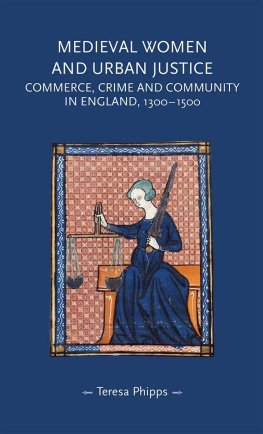

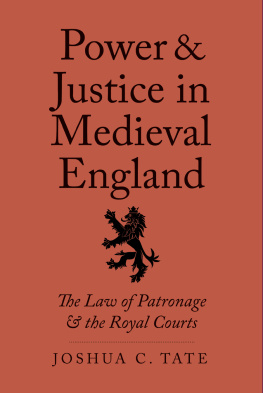
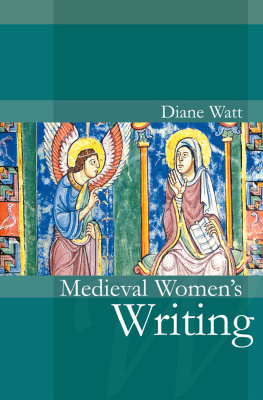
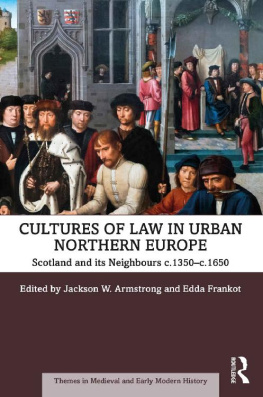
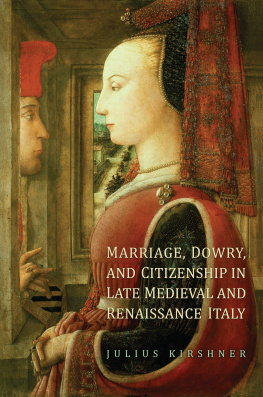
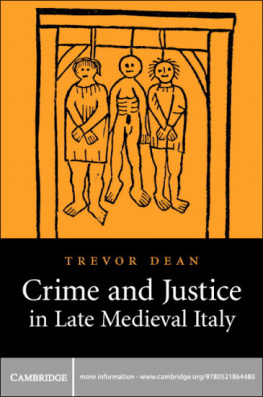



 Teresa Phipps
Teresa Phipps